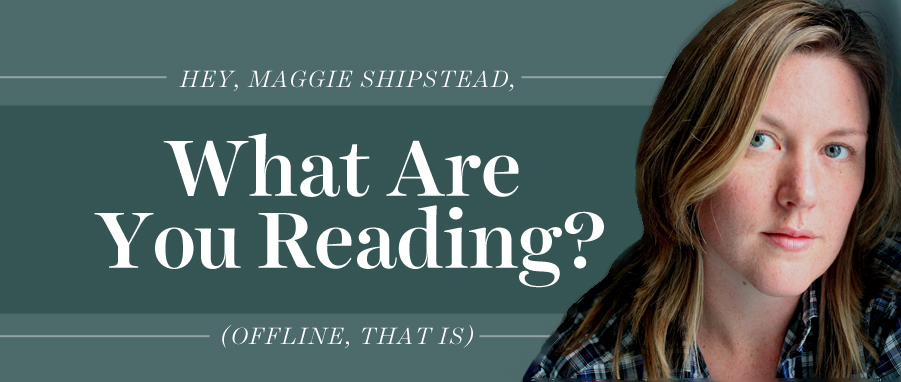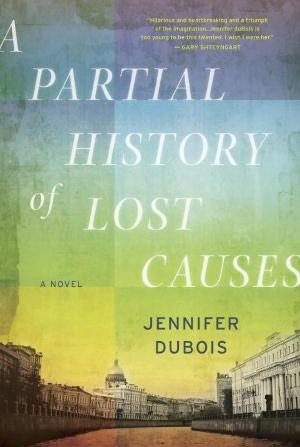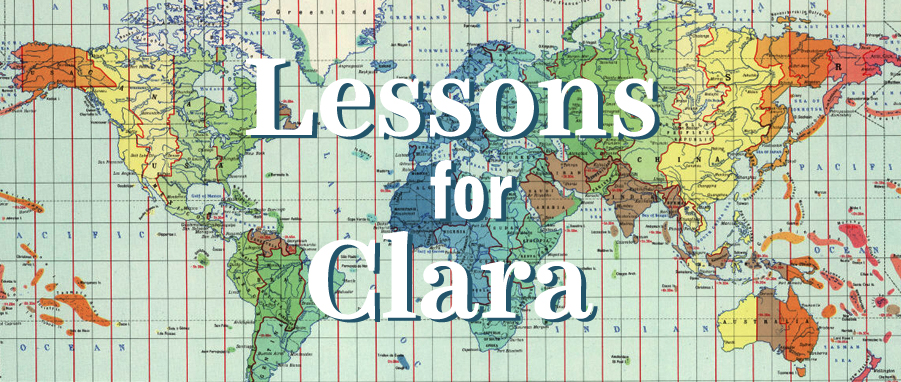My parents are my heroes.
I was their first child, born when they were 21 and 23, respectively. They were young, hopeful, and excited to become parents.
For the first four months, everything was normal. After that, things went downhill quickly. A bad reaction to an antibiotic sent my infant self into a quick spiral of electrolyte loss and malabsorption, until my tiny body was so taxed by constant vomiting and dangerously low potassium levels that my parents were told I was near death.
When I turned twenty-one—the age my mother was as she experienced all of this—I marveled. I could not imagine the pain that the two of them went through, welcoming their beloved first child into the world only to be told months later that the end was likely.
Finally, at six months, the doctor thought to test me for cystic fibrosis, a genetic disease that causes a buildup of sticky mucus throughout the body—and also, incidentally, leads to very quick electrolyte loss. The diagnostic test came back positive.
My early memories of cystic fibrosis are a jumble of doctor’s appointments, strange machines, and leaning upside-down on a pile of pillows as one of my parents percussed my chest to help keep my lungs clear. There are other things that swim through my remembering as well, like the time my babysitter told me that if a necklace clasp worked its way around to the charm in front, it meant you could make a wish.
Crystal-clear in my memory is one sunny Sunday afternoon as I left church with my favorite necklace around my neck. The clasp nestled against the heart-shaped pendant. With childish fingers, I reached to pull it back, remembering as I did so the babysitter’s words.
That’s easy, I thought. I wish my CF would go away.
Still, my childhood was by and large a happy and very normal one, defined far more by the monsters that lived in my basement and my favorite park two blocks away than by my disease. I breathed easily, and could not remember those early days of endless hospitalizations. It wasn’t until high school hit—and with it, sleep loss—that the hospital became a part of my life again. Each winter, I would be admitted for a few days to begin a course of intravenous antibiotics. I would finish out the weeks-long course at home, needing a month or more after I’d finished the round to recuperate from the harsh effects of the strong medications.
And then, early in my junior year, everything changed.
High school had been a hit to my immune system, and I’d grown used to spending the winters fighting off one cold after another. At first, the virus I picked up around Thanksgiving of my junior year seemed like all the others: I was tired, my throat was sore, I had a cough, I was spending most of my time in bed.
But unlike all the other things that had come my way, this didn’t go away. Months stretched on. I was exhausted all the time, living in a half-awake world where even reading a novel was sometimes too much for my brain to process. Weeks would pass in which I never really left the house. I rotated from bed to couch to my parents’ back porch, where I would stretch out across two chairs and watch the squirrels jump from tree to tree in the backyard. I canceled plans with friends again and again. Even a twenty-minute phone call was enough exertion to leave me so drained that all I could do was crawl into bed, desperate for sleep.
Every few weeks, my mom drove me to the pediatrician for more tests. Nothing came back positive, and still my symptoms did not change. I began to have pain in my legs and feet; over time, the pain got so bad that I could hardly walk. I spent my days confined to places where I could have my feet propped up, my legs stretched out, to give my aching muscles a little relief. I left church early each week, roaming the building to find an unused room where I could lay down on the floor. The simple effort of sitting up had become exhausting.
Eventually, a diagnosis came. Ten months after that first sore throat, my doctor tested me for Epstein-Barr, the virus that causes mono. It came back positive. Another doctor explained that because of my weakened immune system, I hadn’t been able to shake off mono like most teenagers do; not only would it take longer for my body to fight off the virus, but I would be susceptible to relapses in times of stress for the rest of my life. He also said that I had developed Fibromyalgia, a muslce pain syndrome, as a complication of the mono.
I hardly recognized my own life anymore. Gone was the vibrant, energetic teenager; in her place was a girl I didn’t know, a quiet girl who found long conversations tiring and needed as much sleep as a newborn. I raged against this change, raged against the loss of the life that I had loved.
But slowly, so slowly, I learned to find the beauty.
Nearly a year after my diagnosis, I sat at my desk with my computer slung across my lap and felt bathed in light and loveliness in a way I had never quite experienced before. That afternoon, filled with a peace I had not felt in so long, I wrote these words:
There is a state, somewhere between consciousness and unconsciousness, prose and poetry, that is entirely unique.
Colors seem brighter; sounds are sharper and clearer but, at the same time, gentler on the ears. Every movement you make—lifting a hand to brush at loose hair, blinking, turning to look beside you—feels lyrical, like ballet. You don't speak: there is no need for words. You simply are.
This, then, is one of the gifts that sickness has given me. This, the talent that some people are intrinsically born with, but I never was: the ability to slow down, to take things as they are, without preconceptions or misperceptions to cloud my vision. The ability to stop for a moment, and see loveliness in ordinary things: a mess on a table, a bag comfortably stuffed with contents, a plastic craft bead. The ability to recognize the extraordinary in the ordinary, and understand the beauty of peace.
I have always been a writer. I would venture to guess that I probably spun stories and wove words in the womb; I certainly have for all the years afterwards. But, I think, as I silently uncurl my legs and shift my position on the chair, that it is sickness that has made me a poet.
 It's a particular feeling, the earth beneath your bare feet.
For city folk the experience can be rare indeed. In the summertime, I try my best to find clean-enough looking patches of grass to wriggle my toes in, but I'd be lying if I said that the search always offers a kind reward. In the city, even sandals can pose summertime hazards. Spend an afternoon walking in a pair of flip flops, and you'll realize that city feet are perhaps meant to be kept somewhat better protected. For this city-dweller, the lesson isn't easily learned. Despite all prior experience, I've left the house on many mornings having done little more than slip on a pair of leather flip flops and trade one cotton dress I call a nightgown for another that I call a sundress. When I return home mid-morning, a thin black line of grime has already formed at the edge of my heel. At the front door, I kick off my flip flops and tiptoe across my apartment floor. Standing fully clothed in the bathtub, I attack my heels with soap and a pumice stone, scraping off the city street that's made its way onto my heels. More often than not, the water runs gray.
It's a particular feeling, the earth beneath your bare feet.
For city folk the experience can be rare indeed. In the summertime, I try my best to find clean-enough looking patches of grass to wriggle my toes in, but I'd be lying if I said that the search always offers a kind reward. In the city, even sandals can pose summertime hazards. Spend an afternoon walking in a pair of flip flops, and you'll realize that city feet are perhaps meant to be kept somewhat better protected. For this city-dweller, the lesson isn't easily learned. Despite all prior experience, I've left the house on many mornings having done little more than slip on a pair of leather flip flops and trade one cotton dress I call a nightgown for another that I call a sundress. When I return home mid-morning, a thin black line of grime has already formed at the edge of my heel. At the front door, I kick off my flip flops and tiptoe across my apartment floor. Standing fully clothed in the bathtub, I attack my heels with soap and a pumice stone, scraping off the city street that's made its way onto my heels. More often than not, the water runs gray.






 Telegraph Avenue by Michael Chabon
Okay, so maybe this won’t actually be released until September, but a friend scored an advance copy for me back in the spring. Sweeeet! The novel follows two families living on the seam between Oakland and Berkeley, one white, one black. The wives are partners in a midwife practice, and the husbands own a record store. Chaos ensues. This is a fat, meaty, absorbing book, jammed with off-kilter characters and happenings and with Chabon’s signature riffs on pop culture.
Telegraph Avenue by Michael Chabon
Okay, so maybe this won’t actually be released until September, but a friend scored an advance copy for me back in the spring. Sweeeet! The novel follows two families living on the seam between Oakland and Berkeley, one white, one black. The wives are partners in a midwife practice, and the husbands own a record store. Chaos ensues. This is a fat, meaty, absorbing book, jammed with off-kilter characters and happenings and with Chabon’s signature riffs on pop culture. The Honourable Schoolboy by John LeCarré
I’m a big fan of LeCarré, especially his Cold War novels. This novel falls between Tinker, Tailor, Solider, Spy (best title ever) and Smiley’s People in a trilogy about George Smiley’s pursuit of his KGB nemesis Karla. Just on a language level, LeCarré is an amazing stylist—a very, very, very fine writer who is extremely nimble within the omniscient point of view—but he’s also a master at assembling complex plots and setting them spinning in a perfectly rendered, dreary-yet-fascinating, invisible spy world.
The Honourable Schoolboy by John LeCarré
I’m a big fan of LeCarré, especially his Cold War novels. This novel falls between Tinker, Tailor, Solider, Spy (best title ever) and Smiley’s People in a trilogy about George Smiley’s pursuit of his KGB nemesis Karla. Just on a language level, LeCarré is an amazing stylist—a very, very, very fine writer who is extremely nimble within the omniscient point of view—but he’s also a master at assembling complex plots and setting them spinning in a perfectly rendered, dreary-yet-fascinating, invisible spy world. Look At Me by Jennifer Egan
I’ve been meaning to buy this novel forever, and finally it appeared in front of my face at the right moment at the right bookstore (Books Inc. in San Francsico). One of the many things I admire about Egan’s writing is that she’s always experimenting with form and daringly fills her books with unexpected twists. In Look At Me, a model comes out of a car crash with eighty screws in her face, not disfigured but undeniably altered, and must figure out how her place in the world has also changed. That would be story enough, but other characters take turns behind the narrative wheel as well: a high school golden boy turned unhinged history professor, an outwardly plain teenage girl with a reckless streak, and a private eye, to name a few.
Look At Me by Jennifer Egan
I’ve been meaning to buy this novel forever, and finally it appeared in front of my face at the right moment at the right bookstore (Books Inc. in San Francsico). One of the many things I admire about Egan’s writing is that she’s always experimenting with form and daringly fills her books with unexpected twists. In Look At Me, a model comes out of a car crash with eighty screws in her face, not disfigured but undeniably altered, and must figure out how her place in the world has also changed. That would be story enough, but other characters take turns behind the narrative wheel as well: a high school golden boy turned unhinged history professor, an outwardly plain teenage girl with a reckless streak, and a private eye, to name a few. Arcadia by Lauren Groff
I will always be obsessed with a short story of Groff’s that was in the 2007 volume of The Best American Short Stories and is called “L. Debard and Aliette.” The opening is set in New York in 1918 as a flu epidemic erupts and an Olympic champion teaches a girl recovering from polio to swim and, eventually, to do sexier things. The story is retelling of Eloise and Abelard and has a mesmerizing dreaminess to it that I’m also loving in Arcadia, which begins in a hippie commune in the 70s and, the reviews tell me, progresses all the way into the future. Groff’s writing has a matter-of-fact lyricism that allows her to write about very strange things very naturally and with apparent effortlessness.
Arcadia by Lauren Groff
I will always be obsessed with a short story of Groff’s that was in the 2007 volume of The Best American Short Stories and is called “L. Debard and Aliette.” The opening is set in New York in 1918 as a flu epidemic erupts and an Olympic champion teaches a girl recovering from polio to swim and, eventually, to do sexier things. The story is retelling of Eloise and Abelard and has a mesmerizing dreaminess to it that I’m also loving in Arcadia, which begins in a hippie commune in the 70s and, the reviews tell me, progresses all the way into the future. Groff’s writing has a matter-of-fact lyricism that allows her to write about very strange things very naturally and with apparent effortlessness. The Cat’s Table by Michael Ondaatje
I love ships and the ocean and Michael Ondaatje’s books, so I see no reason why I won’t love this book. It’s about an eleven-year-old boy traveling from Sri Lanka to England on an ocean liner, and I think it’s going to be beautiful.
The Cat’s Table by Michael Ondaatje
I love ships and the ocean and Michael Ondaatje’s books, so I see no reason why I won’t love this book. It’s about an eleven-year-old boy traveling from Sri Lanka to England on an ocean liner, and I think it’s going to be beautiful.















 Last week, my fiance James and I joined throngs of our fellow New Yorkers to watch To Kill A Mockingbird in Brooklyn Bridge Park. The scene was impressive. The lawn was full to overflowing with families and friends and, in the case of the duo in front of us, very amorous young couples. Many of them packed dinner picnics and set up a hodge-podge of sleek picnic blankets and dirty beach towels to take in the film and the sunset over the East River. I imagine half the crew was seeking refuge from their overly air-conditioned offices and the other half sought the cool breeze coming off the river after a day of sweating it out without any.
Last week, my fiance James and I joined throngs of our fellow New Yorkers to watch To Kill A Mockingbird in Brooklyn Bridge Park. The scene was impressive. The lawn was full to overflowing with families and friends and, in the case of the duo in front of us, very amorous young couples. Many of them packed dinner picnics and set up a hodge-podge of sleek picnic blankets and dirty beach towels to take in the film and the sunset over the East River. I imagine half the crew was seeking refuge from their overly air-conditioned offices and the other half sought the cool breeze coming off the river after a day of sweating it out without any.




